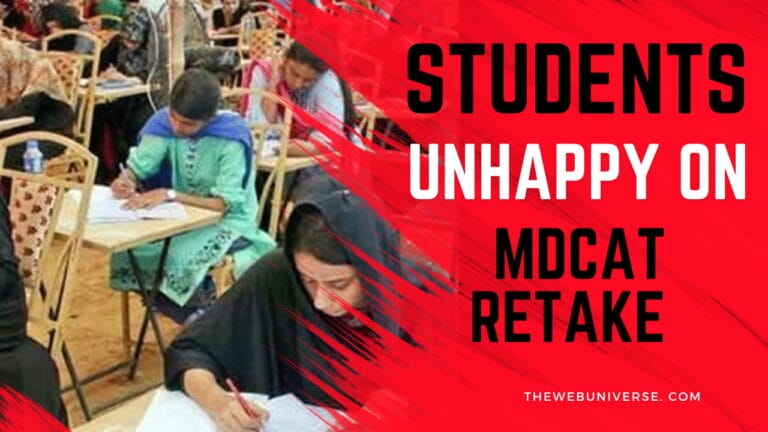Transforming Education Policy to Bridge Gender Disparity: Insights from Council of Islamic Ideology Seminar

In a seminar organized by the ‘Aurat Foundation’ with a focus on gender disparity and women’s empowerment, Dr. Qibla Ayaz, Chairman of the Council of Islamic Ideology (CII), highlighted the urgent need to review education policies in Pakistan. He emphasized the importance of changing societal perceptions and working toward gender equality. This article explores the key points raised during the seminar and the implications for education policy in Pakistan.
Private Sector Involvement and Profits
Dr. Qibla Ayaz expressed concerns about the education sector being handed over to private stakeholders in pursuit of profits. He argued that this approach is counter-productive and undermines the fundamental goal of providing quality education. The focus on profits may hinder efforts to address gender disparities and empower women in education.
Changing Perceptions
One significant issue that Dr. Ayaz addressed is the prevailing perception among some men in Pakistan that women are somehow “weaker” and should not work. This stereotype perpetuates gender inequality, making it essential to raise awareness and encourage men to support equal rights for women. Changing these ingrained beliefs is vital for achieving true gender equality in education.
Dr. Shabana Fayyaz’s Perspective
Dr. Shabana Fayyaz, the Head of the Department for Defence and Strategic Studies at Quaid-i-Azam University, shared her personal experience as the only working woman in her family. She emphasized that traditional perceptions about men not taking from a woman’s income are gradually changing. As an educator, she stressed the importance of reducing violence against women in society and investing in women’s education and training.
Empowering Environment
Naela Chohan, the Special Federal Secretary at the Ministry of Foreign Affairs, emphasized that both genders have separate responsibilities in society. She highlighted the need to teach young men and women how to respect and interact with each other, fostering an empowering environment where both can thrive.
Data from ‘Aurat Foundation’
Dr. Ziaul Haq, the Director General of the Islamic Research Institute at the International Islamic University Islamabad, commended the ‘Aurat Foundation’ for its data on women. He noted that this data is considered the most authentic and original in the country. The availability of reliable data is crucial for informed policy-making to address gender disparity effectively.
Countering Violent Extremism (CVE)
Dr. Ziaul Haq also discussed the Paigham-i-Pakistan project’s aim to counter violent extremism (CVE) and promote behavioral change. He highlighted the need for society to align its actions with its religious beliefs, as the discrepancies between claimed religious values and actual behavior contribute to gender inequality.
The Role of FIA
SP Beenish Fatima, Deputy Director of Cyber Crime at the Federal Investigation Agency (FIA), pointed out the need to understand and combat extremism, which exists in various forms in society and educational institutions. She stressed that men in positions of power often feel the need to accompany women everywhere, highlighting the need to change these dynamics.
Conclusion
Gender disparity in education policy is a pressing issue in Pakistan, and the insights shared during the seminar organized by the ‘Aurat Foundation shed light on the complexities and challenges involved. To address this issue, it is imperative to reevaluate education policies, challenge stereotypes, and create a more empowering environment where both genders can contribute to society. Only by tackling these issues can Pakistan unlock the full potential of its educational system and society as a whole.
FAQs
What was the main focus of the seminar organized by the ‘Aurat Foundation’ with the Council of Islamic Ideology, and who were the key speakers?
The seminar primarily focused on gender disparity and women’s empowerment in Pakistan’s education system. Key speakers included Dr. Qibla Ayaz, Chairman of the Council of Islamic Ideology, Dr. Shabana Fayyaz, Dr. Ziaul Haq, Naela Chohan, and SP Beenish Fatima.
What concerns did Dr. Qibla Ayaz raise regarding the involvement of the private sector in the education sector?
Dr. Qibla Ayaz expressed concerns about the education sector being handed over to private stakeholders solely for profit, emphasizing that this approach could hinder efforts to address gender disparities and women’s empowerment in education.
What important issue did Dr. Ayaz address regarding societal perceptions of women in Pakistan, and why is it significant?
Dr. Ayaz highlighted the prevailing perception among some men in Pakistan that women are “weaker” and should not work. This stereotype perpetuates gender inequality, and changing these ingrained beliefs is vital for achieving true gender equality in education.
What perspective did Dr. Shabana Fayyaz share, and why is it relevant to the seminar’s theme?
Dr. Shabana Fayyaz, the Head of Department for Defence and Strategic Studies at Quaid-i-Azam University, shared her personal experience as the only working woman in her family, emphasizing the changing perceptions regarding women’s income. Her perspective underscores the importance of reducing violence against women and investing in women’s education and training.

